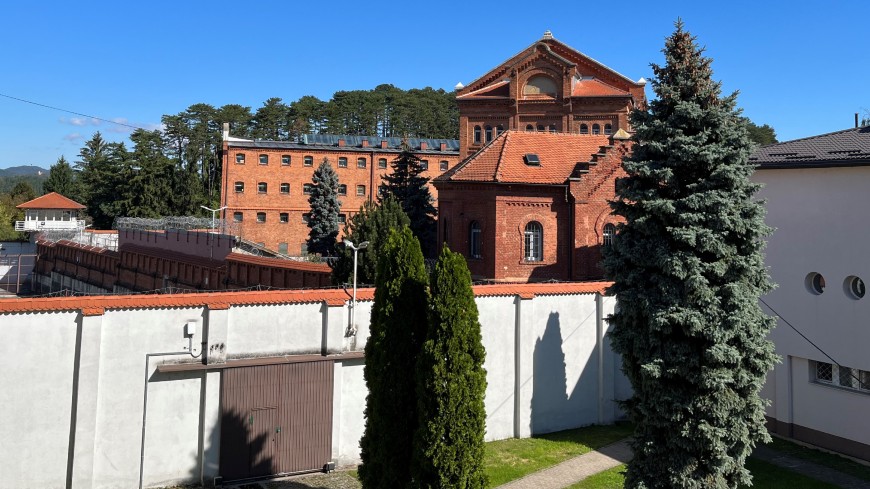During the visit, the CPT delegation examined the treatment and conditions of detention of prisoners held in four prison establishments, and of criminal suspects deprived of their liberty by the Croatian police. The delegation also visited three psychiatric establishments and two social care homes to assess the treatment of patients and residents.
The CPT report notes a marked improvement in the treatment of criminal suspects deprived of their liberty by the police since the previous visit in 2017. This can be attributed to the strengthening of legal safeguards following the 2019 amendments to the Code of Criminal Procedure, such as the mandatory audio-video recording of police interviews. However, some allegations of physical ill-treatment by the police were received, mainly from criminal suspects from the Roma ethnic group, consisting of punches, kicks and slaps inflicted upon arrest.
Concerning the situation in prisons, the CPT found that this is severely impacted by the significant increase in the prison population in recent years (notably in pre-trial detention), combined with the reduced capacity of the prison estate due to damage caused to certain establishments by the earthquake in 2020.
The conditions of detention found by the delegation, particularly in Zagreb Prison, were affected by severe overcrowding (for example, six prisoners in cells measuring 18 m2). The report is critical of the Croatian authorities’ practice of providing prisoners with only 3 m2 of living space each, without offering significant outdoor access entitlements and a purposeful regime of activities. The CPT reiterates its position that the minimum living space for prisoners in multiple-occupancy cells should be at least 4 m2 per person, and that vigorous measures should be introduced at the national level to reduce the prison population to below the official capacity of the prison estate.
Regarding women prisoners, the CPT is critical of the austere, impersonal and cramped nature of the dormitories at Požega Prison, as well as of the acute overcrowding and impoverished regime on offer to female remand and sentenced prisoners at Department No. 10 of Zagreb Prison. Other recommendations include upgrading the facilities, equipment, food provision and access to fresh air in the Mother and Child Unit at Požega Prison.
The report refers to a small number of allegations of physical ill-treatment of prisoners by staff, related to incidents of excessive use of force when managing agitated prisoners, notably at Lepoglava and Požega Prisons. With regard to inter-prisoner violence and intimidation, the report finds that prison staff were generally alert to such incidents, but that they still occurred, suggesting the need for a more proactive prevention strategy. The Committee is also critical of the practice of placing inmates in a padded cell (rubber room), their hands cuffed behind their back, and occasionally also ankle-cuffed, following episodes of violent behaviour or self-harm and it requests that such practices be stopped in the future.
The provision of quality healthcare to prisoners is affected by the chronic understaffing of general practitioners and the inability to attract new staff to fill vacancies. The report is also particularly critical of the unsanitary conditions, overcrowding and poor state of repair at Zagreb Prison Hospital, as well as the severe understaffing of psychiatrists and the lack of individualised treatment for forensic patients.
In the three psychiatric hospitals visited, the CPT found that there was a generally calm atmosphere. Nevertheless, some allegations of physical abuse of patients by staff were received at the Clinical Hospital Centre (KBC) in Rijeka, as well as allegations of verbal abuse at both the KBC in Rijeka and the Psychiatric Hospital in Ugljan.
The CPT is critical of the very frequent resort to mechanical restraint of psychiatric patients and to its prolonged duration, in KBCs Rijeka and Split. In some cases, such treatment may, in the CPT’s view, amount to inhuman and degrading treatment. Patients should only be restrained as a last resort and the CPT recommends that the Croatian authorities abandon the practice of phased restraint of psychiatric patients (for example, starting with five-point restraints and gradually reducing them to two- or one-point restraints).
Living conditions for patients in the three psychiatric institutions visited were generally austere and impersonal. Conditions at the Ugljan Psychiatric Hospital were particularly poor, with patients being offered as little as 3 m2 of living space, with the state of repair deplorable in most wards. An urgent programme of refurbishment is required. Access to outdoor exercise was problematic in all three hospitals, and at Ugljan hospital, the CPT found that most forensic patients remain confined to their ward for the entire duration of their court-ordered measure.
As regards social care homes, there were no allegations of physical abuse of residents by staff. However, in the Mirkovec Home, the Croatian authorities should ensure that adequate numbers of staff are present to supervise residents, and that they are properly trained to deal with challenging behaviour, in order to reduce the number of physical altercations.
Steps also need to be taken to improve the living conditions at the Mirkovec Home by personalising the rooms and renovating the large capacity dormitories. The CPT also repeats that all residents should have unrestricted access to fresh air during the day. Further, the CPT found that psychiatric and somatic care was inadequate at this home, with residents not receiving a prompt medical examination upon arrival, nor having an individual treatment plan drawn up.
In their response, the Croatian authorities provide information on the measures taken to implement the CPT's recommendations. Information is provided concerning the measures envisaged to address prison overcrowding, the recruitment of healthcare staff, the reconstruction of facilities at Požega Prison, the improvement of material conditions at the Ugljan Psychiatric Hospital and the process of deinstitutionalisation of residents of social care homes.
- Read the report (in English only)
- Read the executive summary (in English, in Croatian)
- Read the government response (in English only)
- The CPT and Croatia



